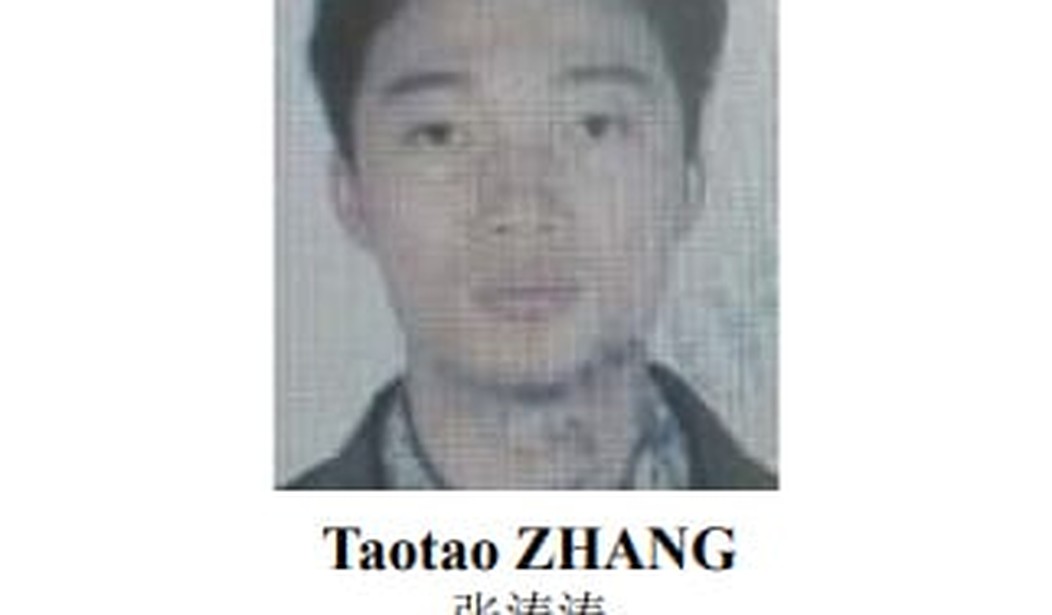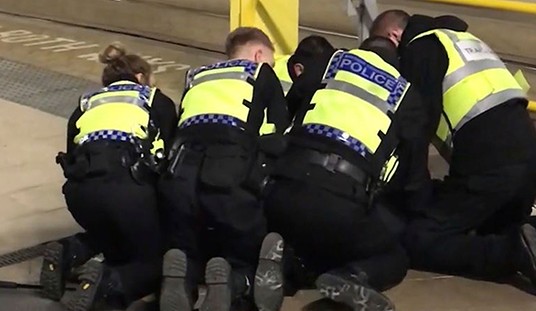On Tuesday the United States announced sanctions against Zhang Taotao and his Hong Kong-based Allyrise Technologies. The U.S. accuses Taotao of being one of, if not the, world’s most significant fentanyl drug kingpins.
Zhang Taotao is accused of shipping large amounts of the powerful synthetic opioid to the US. Fentanyl is less expensive than heroin and prescription painkillers, but can kill in very small doses.
Fentanyl sourced largely from labs in China has driven a spike in US drug overdose deaths. More than 31,000 Americans died after taking synthetic opioids in 2018, continuing a five-year surge.
Fentanyl is a synthetic opioid painkiller. The Drug Enforcement Agency says it’s 80 to 100 times more powerful than morphine. A tiny dose can be lethal.
China and Mexico are the primary sources of fentanyl illegally sold in the United States, with China accounting for the majority. It’s also the top source for precursor chemicals used to manufacture fentanyl.
Hans van Spakovsky writes that fentanyl is not only extraordinarily powerful, it’s also extraordinarily lucrative.
The profit margin is remarkable: A $3,000 investment can produce $1,500,000 in earnings.
A laboratory-made drug, fentanyl requires less time and space to produce than its agricultural counterpart, heroin. Chemists can manufacture fentanyl in small labs and use easy shipment methods.
The amount of fentanyl necessary to produce its painkilling effect is so small that manufacturers can ship it in ordinary packages such as envelopes used for ordinary letters.
Cheap production isn’t the only economic benefit suppliers have on their side. Fentanyl is said to produce a better high and be more addictive and potent than heroin (50 to 100 times more powerful).
This poison isn’t affecting only addicts. In some cases, first responders have inhaled airborne fentanyl, resulting in a contact overdose.
Along with China and Mexico, India is emerging as a source for fentanyl or precursors that are distributed in the United States.
In its statement, the State Department outlines Taotao’s kingpin role.
Taotao Zhang, a chemist and chemical supplier, has shipped synthetic opioids to the United States via multiple individuals and freight-forwarding services in order to disguise the origin of the substances. Labels disguising the substances contained in the parcel are used to avoid seizure by authorities. Once a package is received in the United States, U.S.-based distributors can generally then press one kilogram of fentanyl into up to one million counterfeit pharmaceutical pills for further distribution to domestic customers. In addition, Taotao Zhang is the director of Allyrise Technology Group Co., Limited, located in Hong Kong. Allyrise Technology Group Co., Limited is a front company for Taotao Zhang’s financial transactions.
And
As a result of today’s action, all property and interests in property of the individual and the entity that are in the United States or in the possession or control of U.S. persons must be blocked and reported to OFAC. OFAC’s regulations generally prohibit all dealings by U.S. persons or within (or transiting) the United States that involve any property or interests in property of blocked or designated persons.
The Trump administration has pressured the Chinese government to crack down on its domestic fentanyl industry, which accounts for about 40 percent of the global supply. Last month, the U.S. sanctioned four other Chinese nationals for manufacturing and distributing fentanyl in the U.S.
The U.S. Treasury Department named the individuals as Songyan Ji, Longbao Zhang, Guifeng Cheng and Guangfu Zheng, and the firm as Global United Biotechnology Inc, which it said was owned and operated by the Zheng Drug Trafficking Organization (DTO) run by Fujing Zheng.
Treasury identified Fujing Zheng and the Zheng DTO as significant foreign narcotics traffickers under the U.S. Kingpin Act last August.
Fentanyl is extremely powerful and all too plentiful. The latter is due to the ease with which it can be distributed.
It is wreaking havoc on communities in the United States, and looks to have played a role in the recent riots across the nation. George Floyd, who died in police custody in Minneapolis at the end of May, may have had a lethal dose of fentanyl in his blood at the time of his death, according to documents recently filed by the Hennepin County Attorney’s Office.
In one memorandum filed May 26 after a virtual meeting with Baker, the Attorney’s Office said Baker concluded, “The autopsy revealed no physical evidence suggesting that Mr. Floyd died of asphyxiation.” Baker told the attorney his investigation was incomplete pending a toxicology report, however.
The other memorandum filed June 1 by the Attorney’s Office indicated Baker said Floyd’s level of fentanyl was “pretty high,” and a potentially “fatal level.”
“[Dr. Andrew Baker] said that if Mr. Floyd had been found dead in his home (or anywhere else) and there were no other contributing factors he would conclude that it was an overdose death,” the June 1 memo said.









Join the conversation as a VIP Member